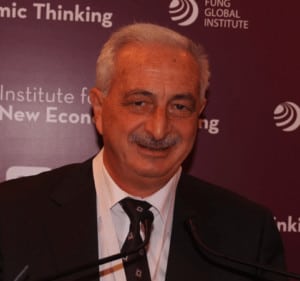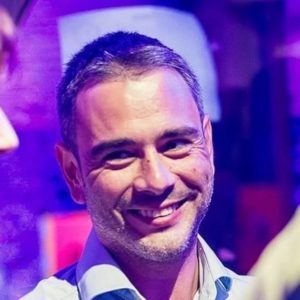9 July, 2019 – Pi 6 (via Indonesia 23)
Due to limited seats, all events at Pi Campus are invitation only.
If you were not invited, you can request an invitation here.
During this event, we will introduce you to two new scientific data-based theories that explain the modern world we live in.
Economic Fitness and Complexity methodology, to which contributed our guest, professor Luciano Pietronero, describes economics as an evolutionary process of ecosystems made of industrial and financial technologies that are all globally interconnected. The dynamics in the new GDP-Fitness space opens up to an entirely new way for monitoring, planning, and forecasting the economic growth of countries, to the point that the IFC-World Bank has already adopted this methodology. Extensions to technologies and science permit to analyze also companies, specific industries, and, in general, the innovation and creativity process.
Another aspect strictly connected with data is the spread of so-called fake news. Our guest Walter Quattrociocchi will share with us a work that provides quantitative evidence about the cognitive determinants behind misinformation and rumor spreading. This research was focused on Italian and US data, and produced results that the World Economic Forum included in the Global Risk Report in 2016 and 2017.
Luciano is a physicist, awarded in 2008 with the Enrico Fermi Prize, the top prize of the Italian Physical Society, and serves as a full professor at the department of Physics at the Sapienza University of Rome. He is also Director of the Institute of Complex Systems of the National Research Council (Consiglio Nazionale delle Ricerche). With his researches, he has provided a huge contribution to the study of fitness economics, an aspect of complexity economics.


Walter is head of the Laboratory of Data and Complexity at Ca’ Foscari University of Venice, where he is Assistant Professor (Tenure Track) in Computer Science and currently qualified for associate professorship. His research interests include data science, network science, cognitive science, and data-driven modeling of dynamic processes in complex networks. His activity focuses on the data-driven modeling of social dynamics such as (mis)information spreading and the emergence of collective phenomena. The results of his research in misinformation spreading have informed the Global Risk Report 2016 and 2017 of the World Economic.
We are innovators, investors and creatives who believe in diversity